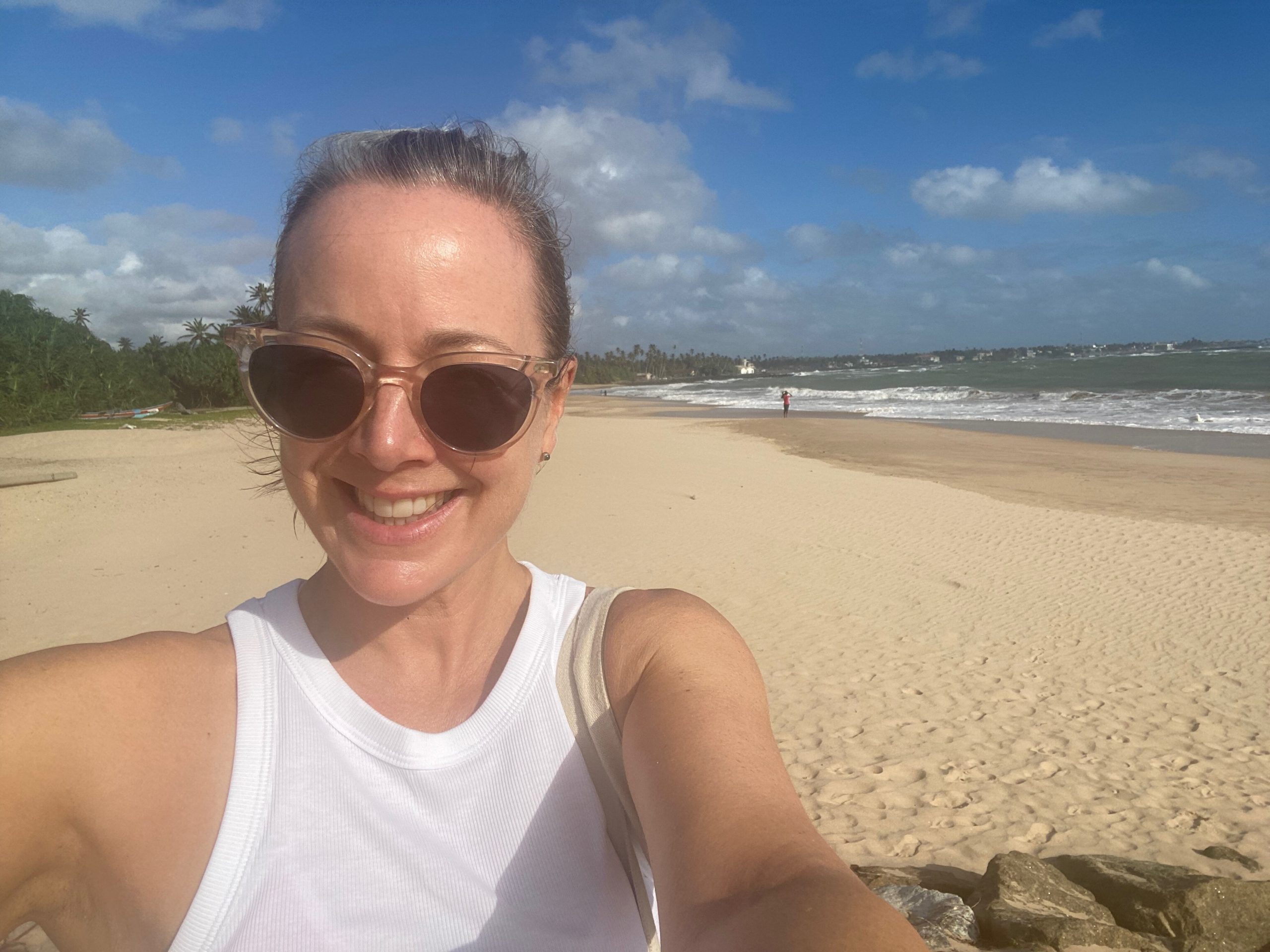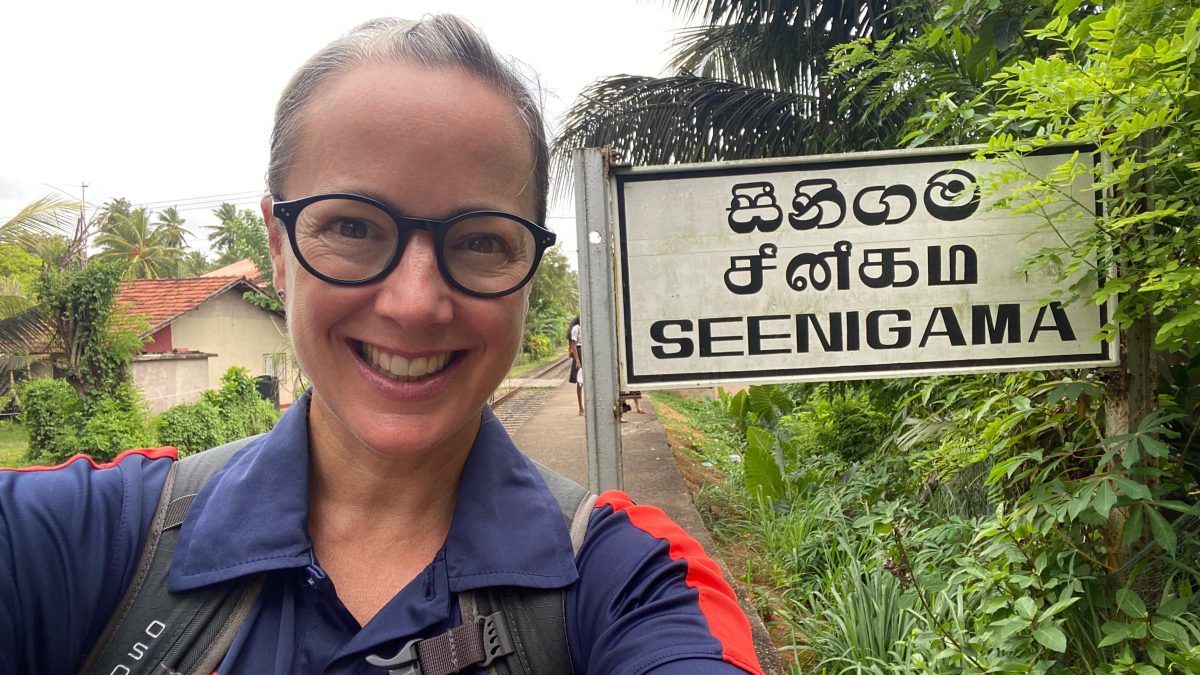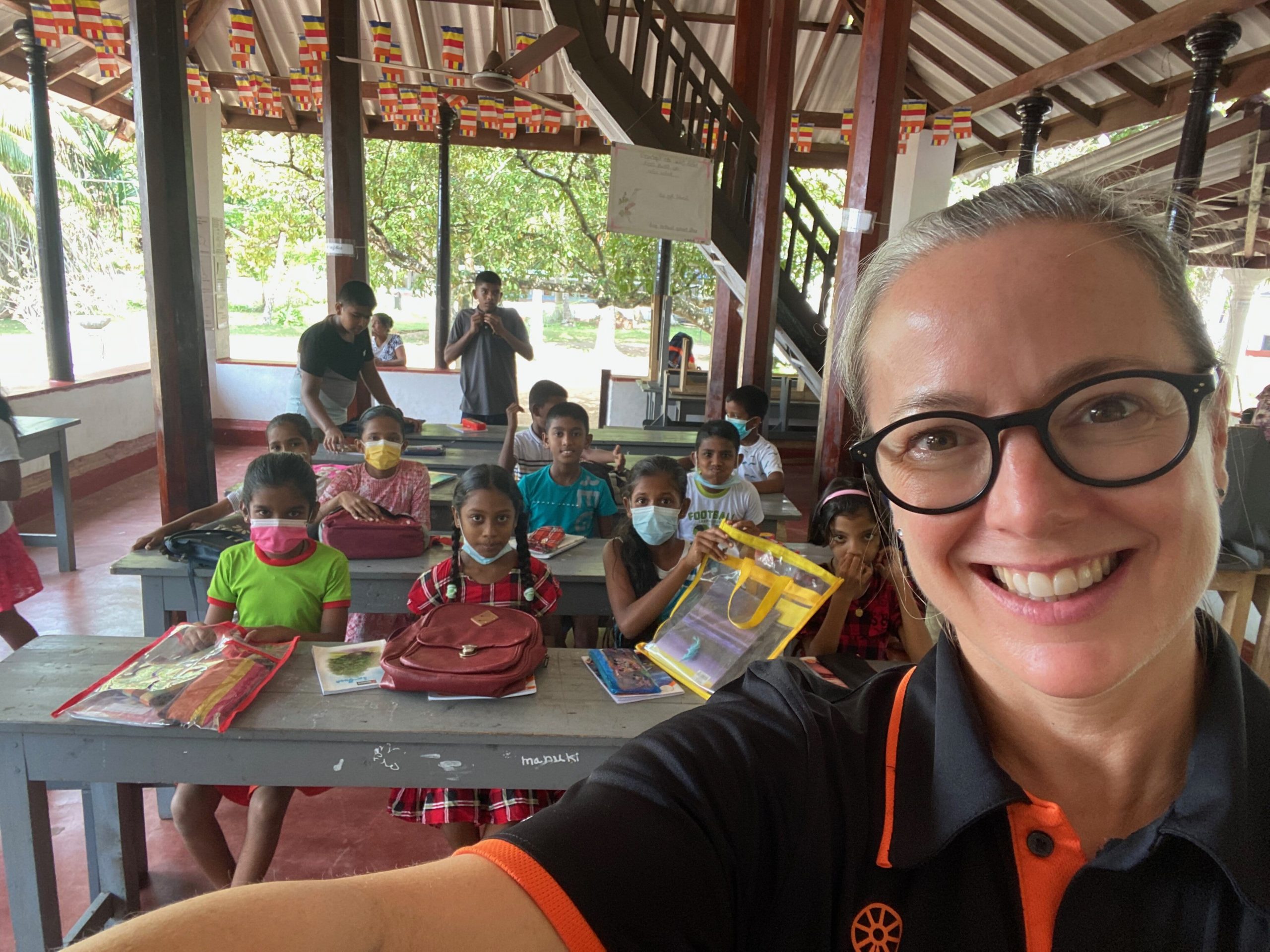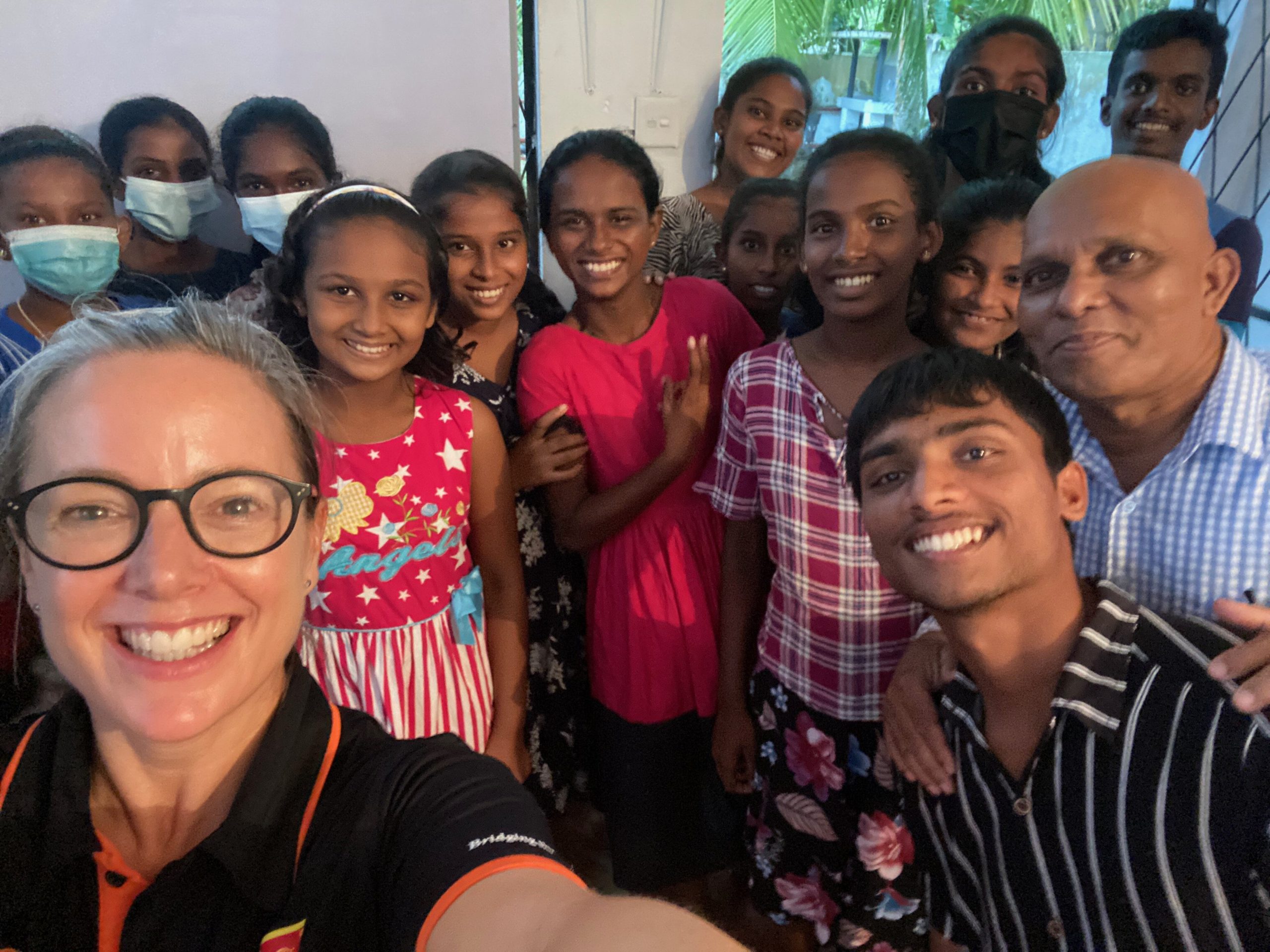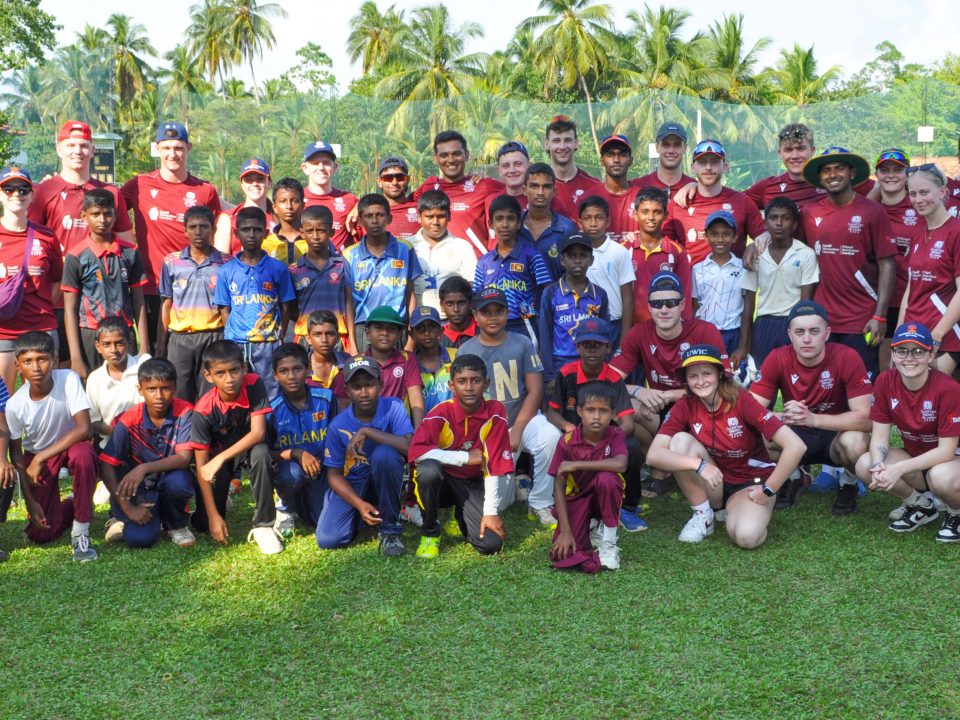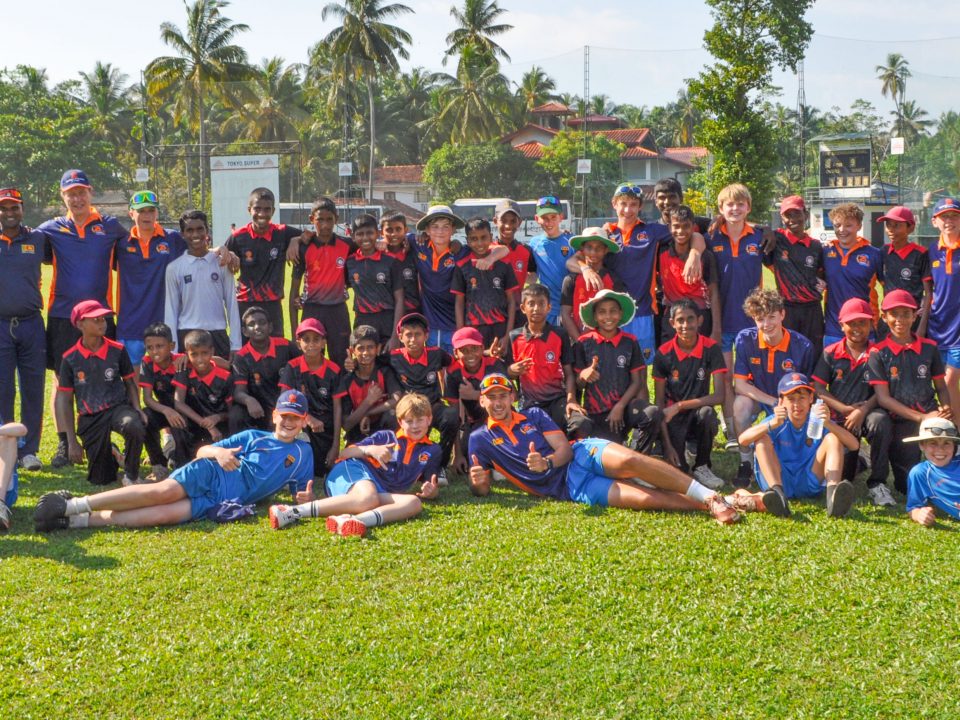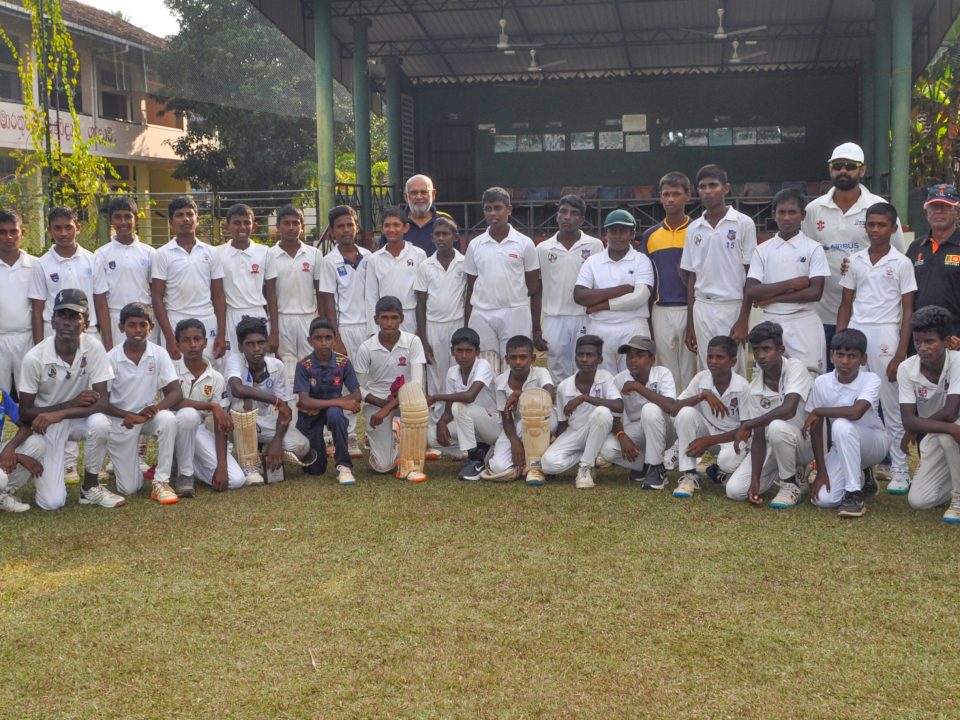The Foundation of Goodness is a holistic rural development model that seeks to bridge the urban-rural divide in Sri Lanka via 10 empowerment divisions across 900+ villages island-wide, and reached over 307,000+ beneficiaries in 2022 alone by way of 15 Empowerment Centres, free of cost.
Volunteering at FoG by Rachel Dennis

3 Reverse Osmosis Water Purification Plants
October 26, 2022
Goodness Agriculture Project 2022
November 9, 2022We had a conversation with Volunteer Rachel Dennis on her Volunteer Experience with us! Her is what she had to say:
Can you tell us about your experience volunteering with The Foundation of Goodness? Why did you decide to volunteer with us?
Back in London I’m a Marketing Consultant however six years ago I qualified as an ESL teacher. I was looking for an overseas volunteer teaching opportunity and an work colleague introduced me to the Foundation.
Working with an organisation that has compassion at it’s very core was really important to me. This compassion really shines through everyday. Knowing that you’re working within the framework of an established NGO was also really important to me, as you can have confidence that you’ll be supported and that what you’re doing really does make a difference.
I’m here for four weeks based at the OYOB Centre of Excellence (CoE) in Seenigama, which is about an hour and a half south of Colombo. I teach students at the CoE as well as in the surrounding villages. I’m staying at the Foundation’s volunteer accommodation at the CoE.
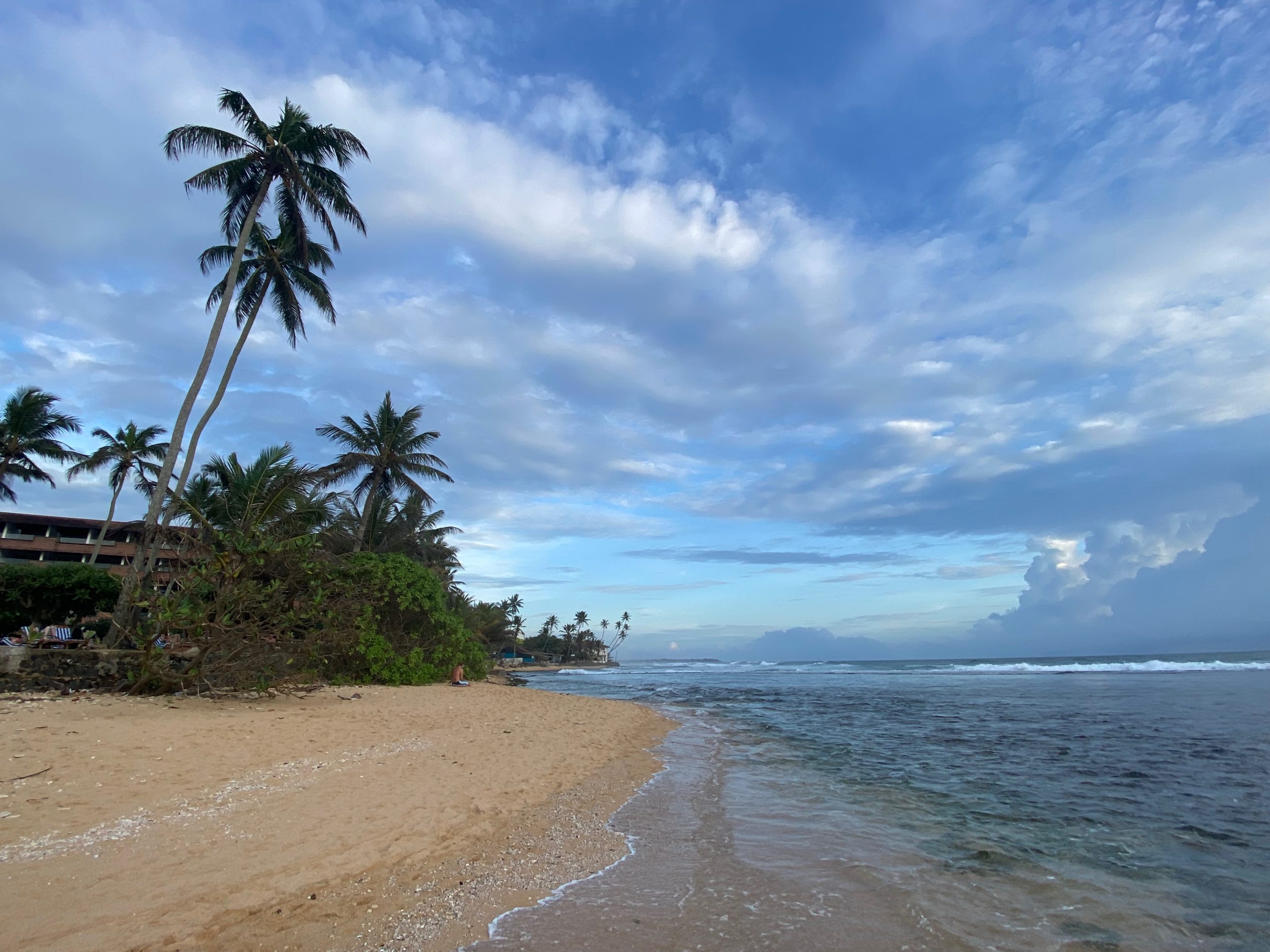
Can you describe an average day?
Everyday is different but each day brings much joy and learning! A typical day might look something like this…
8am: Hoppers for breakfast
I either have fruit or a traditional Sri Lankan breakfast of string hoppers, daal and pol sambol…delicious!9am: Coffee and lesson planning
I normally teach 20 classes a week, around 4 hours a day, and each lesson needs a lesson plan. I use online resources as well as some ESL books that the Foundation has to plan my lessons. We are pretty low-tech and I normally just teach with a whiteboard and handouts for any tasks or activities.10am: Class one: Photography students
The first class of the day is with students from our Photography and Graphic Design courses. Today we’re learning about strong adjectives and sentence stress. It’s really important that each lesson gives students the chance to practice speaking English so we include lots of speaking activities and role plays.
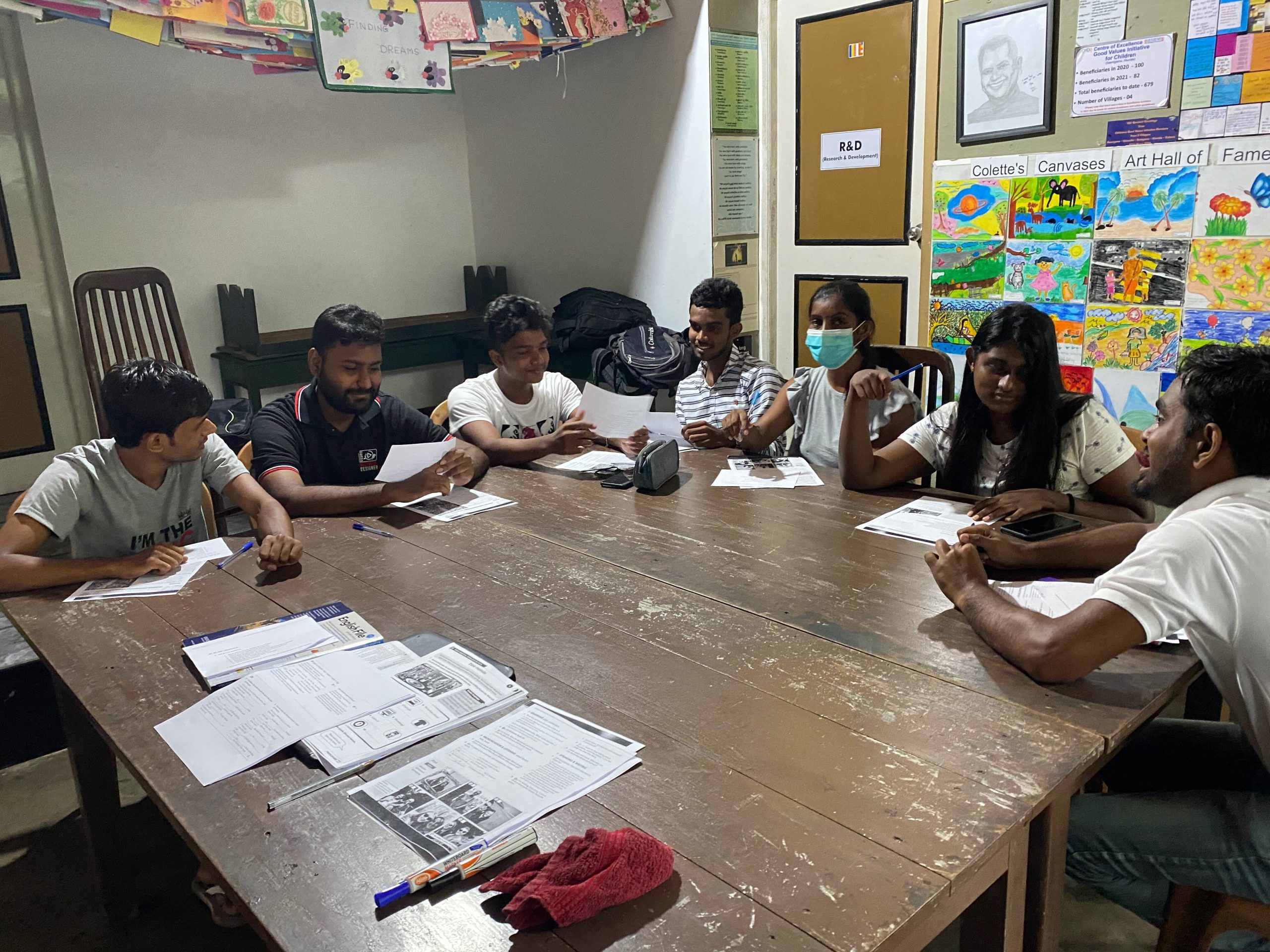
11:30am: Class two: Dive students
The second class of the day is with our Dive Students. Our Dive For Good Centre provides training for young people in the rural communities to become professional divers. English lessons are also included on the syllabus to help give them the best possible opportunities after they graduate. Today we’re role playing giving a dive briefing.
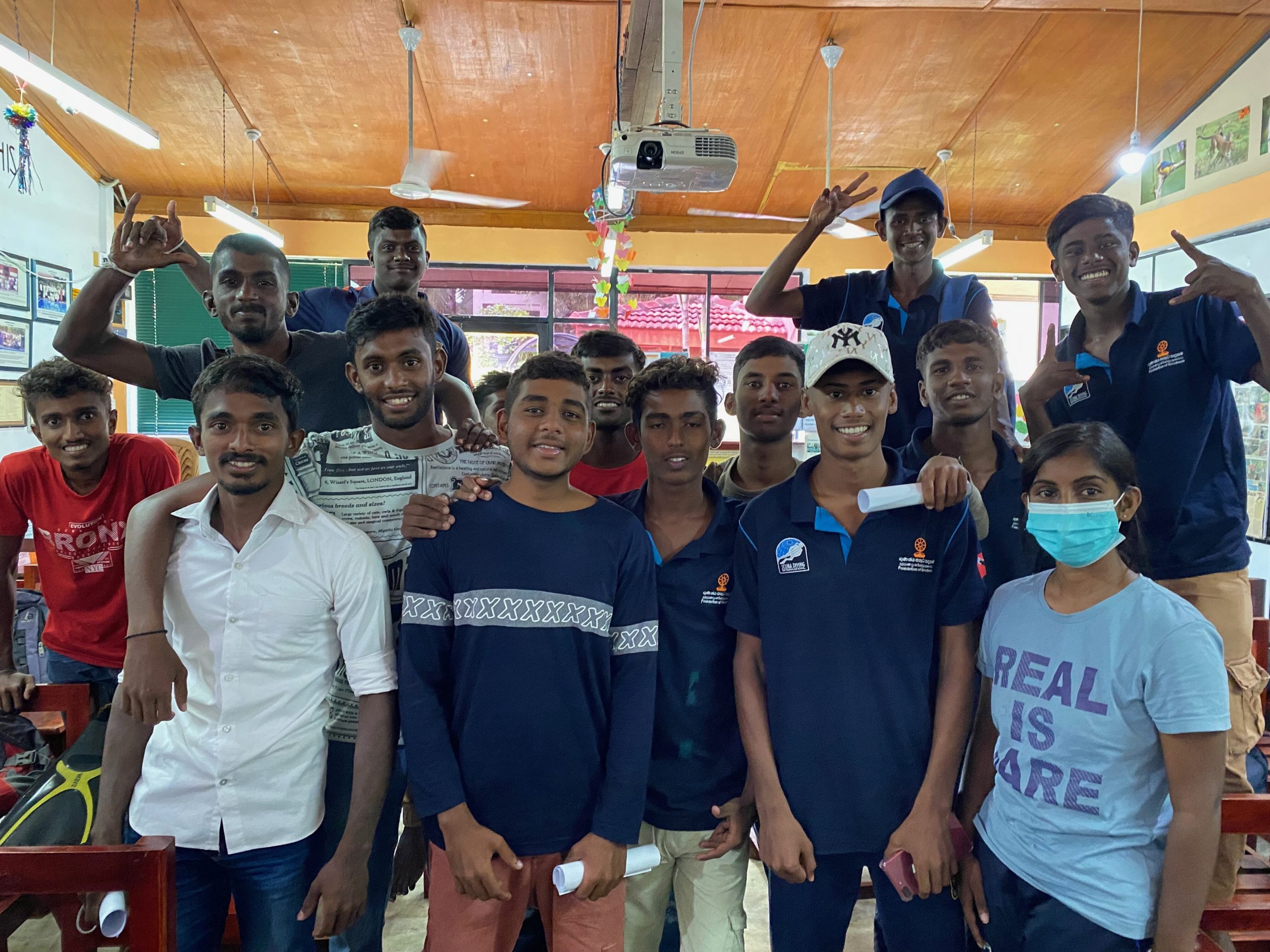
1pm: Time for rice and curry
I hop on the bike that’s provided for the volunteers to use and cycle for five minutes into Seenigama to my favourite place for rice and curry. A delicious big plate of rice with dhal and a selection of vegetable and fish curries costs 500 rupees, about £1.25 and fills you up for the rest of the day! If I’m short on time however I’ll quickly grab an egg or vegetable rotti from one of the food stands.
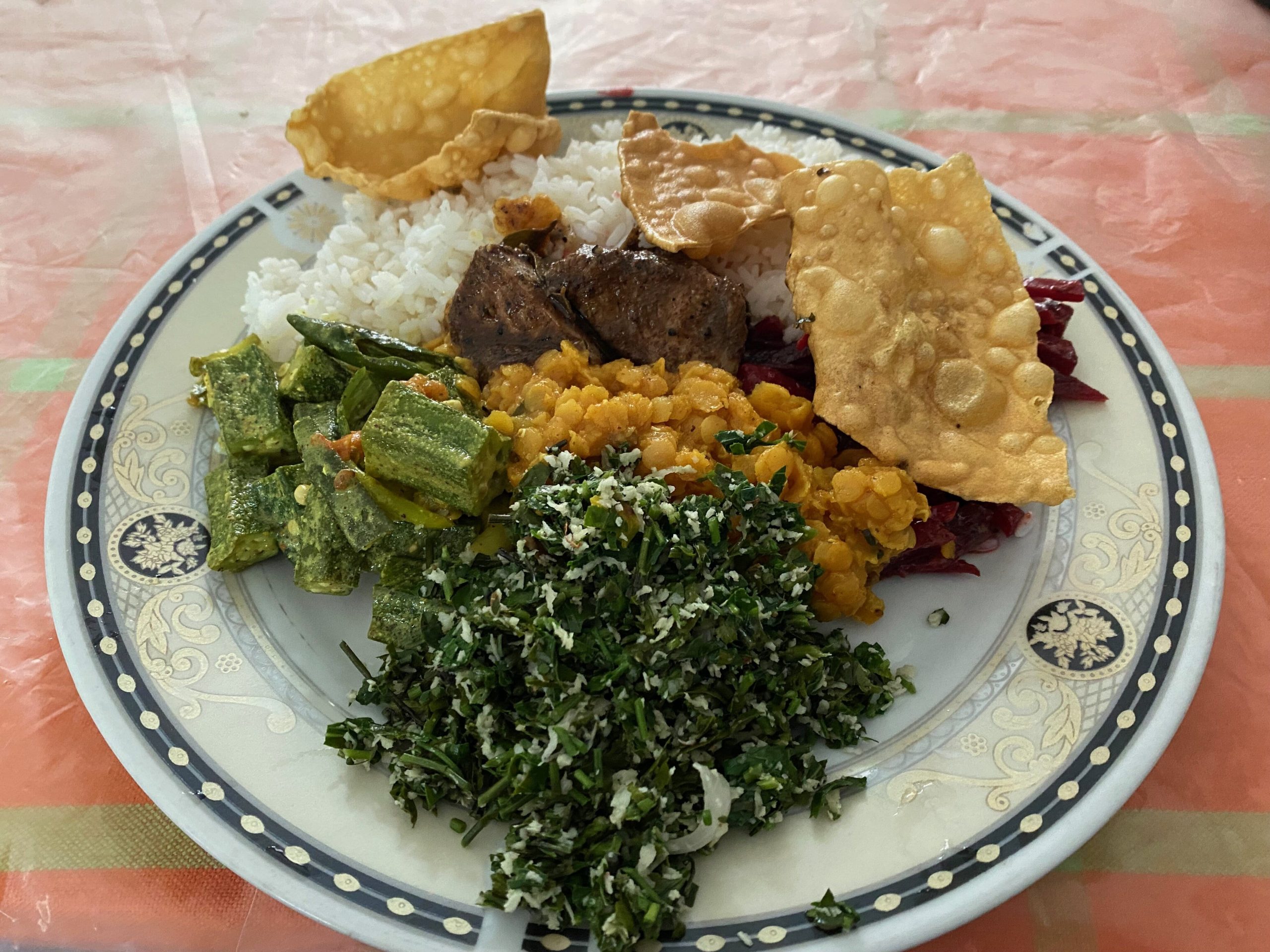
2pm: Class three: Rathgama Village Heartbeat Empowerment Centre
There are 14 Village Heatbeat Empowerment Centres in the Southern Province and each provides valuable services including educational courses to remote rural communities. Today I’m in Rathgama which is about 25km from Seenigama and nestled amongst lush green paddy fields and jungle. There are about 20 children in the class between the ages of 10 and 15 with different levels of English proficiency. It can be quite challenging to teach a mixed ability class but we use peer-to-peer learning, where student’s help each other out, and mix up the types of activities to ensure all students get the most out of the lesson.
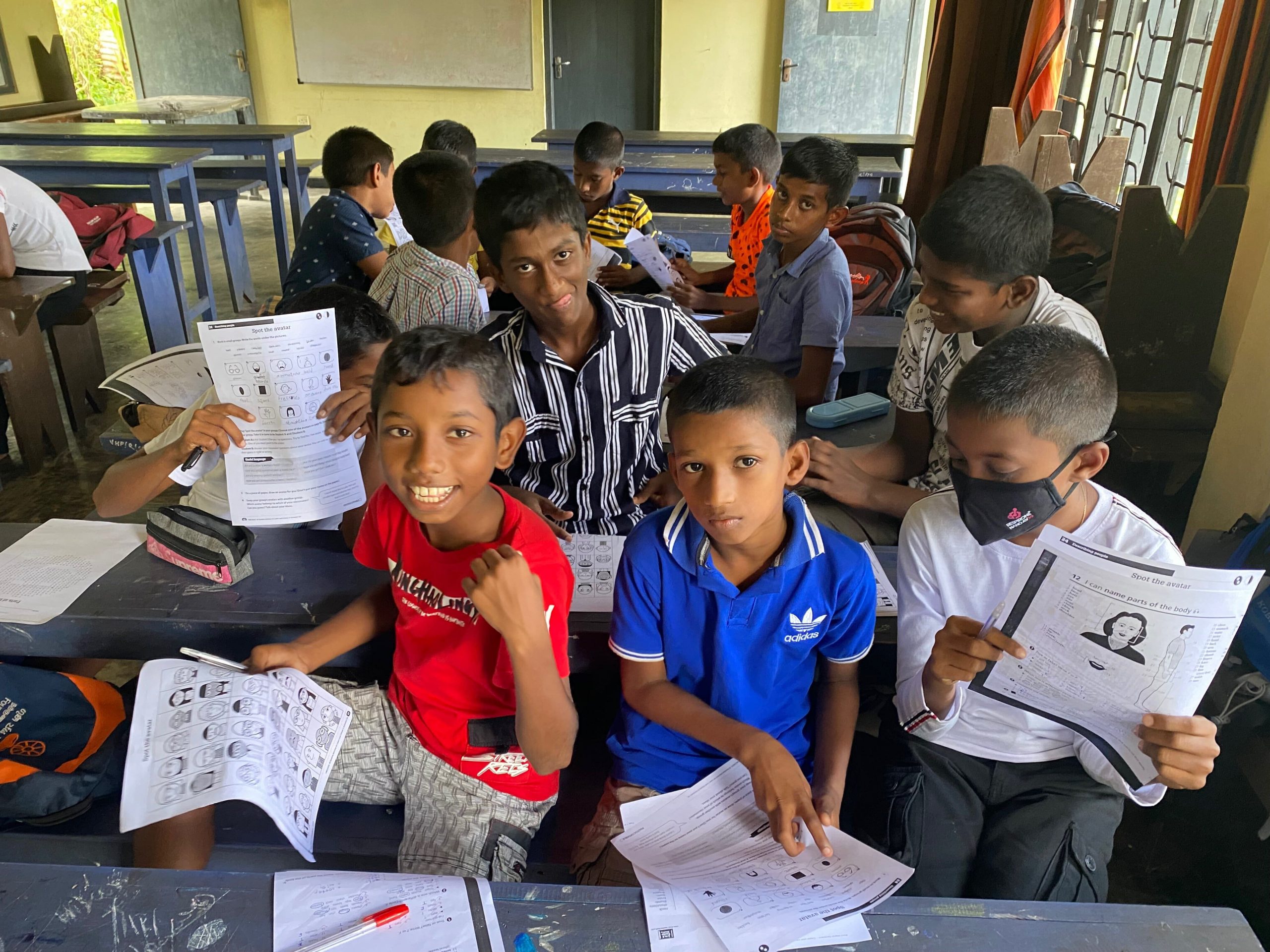
6pm: A swim at the Sports Academy
After class I jump into the Foundation Tuk Tuk, expertly driven by Muthu, and head back to Seenigama. With lessons finished for the day, I make the most of the Foundation’s Sports Acadamy and go for a swim. The Acadamy provides development programmes across a range of sports including, netball, volleyball, swimming, karate and of course cricket!7:30pm: Kottu and a trip to the temple
I have dinner in one of the local restaurants this evening, a big bowl of delicious vegetable kottu. Kottu is a traditional dish made with chopped roti stirfried with onions, chillies, spices and vegetables. I then walk to the Seenigama Devalaya, the local temple dedicated to Devol Deviyo. Devol is a local god, who protect the fisherman and their boats, and nowadays buses and their drivers! It’s a popular destination and relatively peaceful and quite at this time of night.
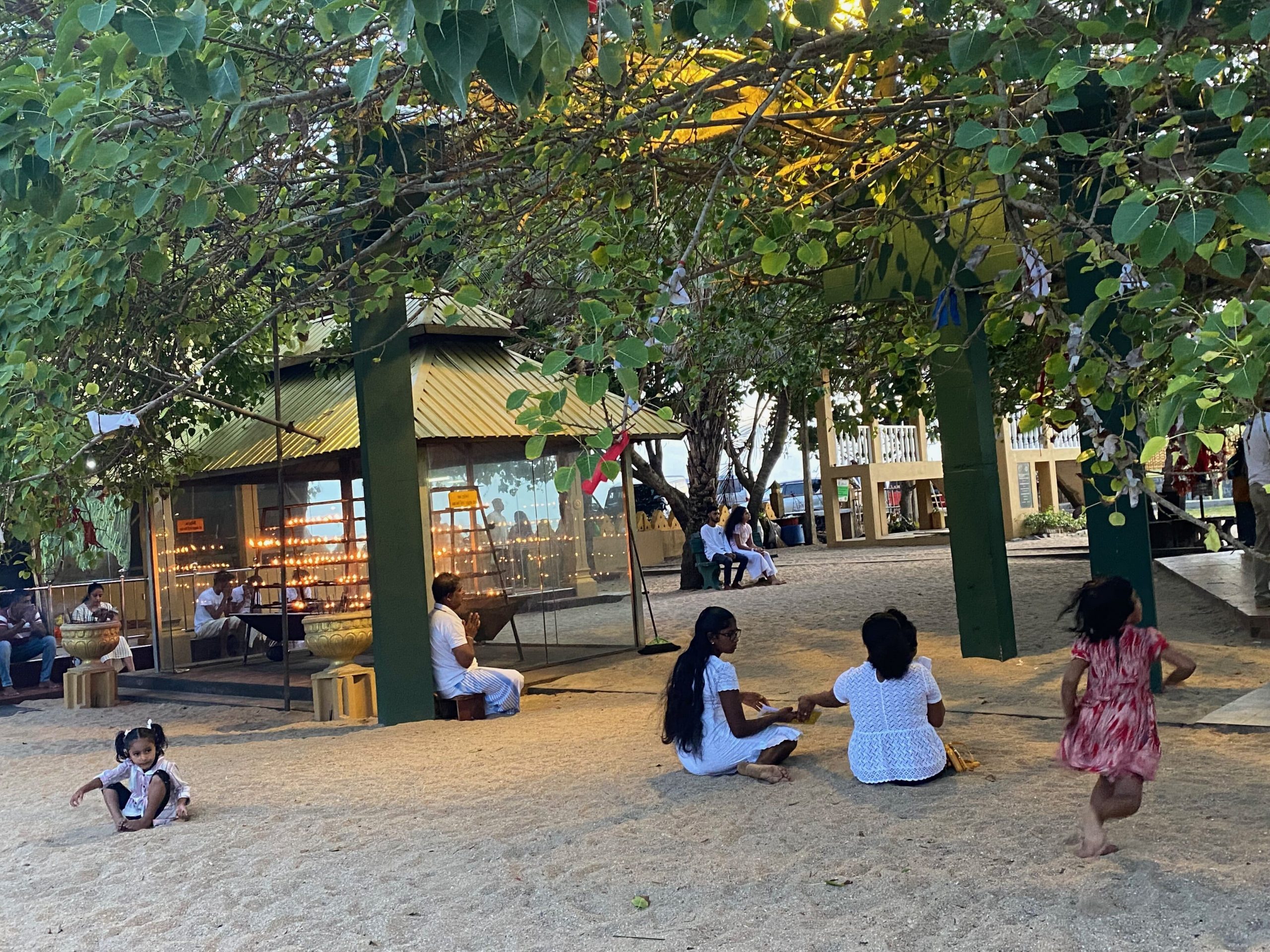
What’s the best thing about volunteering at the Foundation of Goodness?
I’m not just sure I can pick one thing! Obviously being able to help people to improve their English, even if in a small way, is very fulfilling. However I’d also have to say, the people and the everyday experiences of living in a small Sri Lankan village. From the children at the VHE centres, to CoE staff and the villagers that you see everyday everyone is so welcoming and kind. Seenigama and the Foundation feel like home.
Earlier this year the difficult political situation in Sri Lanka received a fair bit of International news coverage. Were you worried about coming to Sri Lanka? What’s the situation like now?
I wasn’t worried about coming. The Foreign and Commonwealth office (FCO) has removed its advisory against travelling to Sri Lanka and the volunteer coordinator at the FoG had provided me with lots of helpful information, so I didn’t have any concerns.
Obviously the political and economic situation has impacted daily life. There are occasional power cuts in the evenings, but these are planned and only last for about an hour. The CoE also has a generator, so even if the power does get cut, we can continue without interruption.
The cost of living has increased dramatically in the last 8 months which obviously has led to a really challenging situation, and many people are being pushed even further below the poverty line. This is why the work that the Foundation does is so important, especially at the moment.
As a volunteer living here the impact is negligible, prices for transport and food etc are still much lower than in the UK. You can easily live off £4 per day if you’re happy to get the bus and eat from the local restaurants and food stands.
Can you give our readers any final thoughts on volunteering at the Foundation of Goodness?
Volunteering here is an incredibly fulfilling experience, you’ll learn a lot about yourself and you’ll be helping the Foundation to meet it’s important goals to empower less privileged rural communities. It’s especially vital at this time as Sri Lanka is battling with such a challenging socio-economic situation.
There are many opportunities to support the Foundation, either in-person or as a virtual volunteer. Obviously financial donations are also very welcome! The team here are open to discussing new ideas and suggestions on how volunteers can bring value to the organisation. Drop them a line and see where it could take you.
